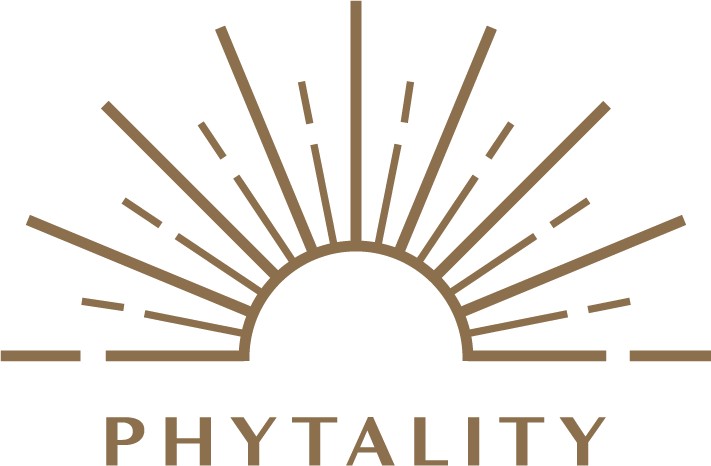
DHA, or docosahexaenoic acid, is an omega-3 fatty acid that is critical to brain health. It is a primary structural component of the brain and nervous system, and it is essential for brain development, cognitive function, and mental health.
However, many people may not consume enough DHA in their diets, leading to suboptimal brain function and increased risk of cognitive and mental health issues.
To address this issue, many people turn to DHA supplements to boost their intake.
In this article, we'll explore the benefits of DHA supplements for brain health and why they're essential for all stages of life.
How much DHA is needed for brain health?
The recommended dosage of Docosahexaenoic Acid (DHA) for brain health can vary depending on several factors such as age, dietary intake, and specific health conditions. Generally speaking, for adults, a daily intake of 200 to 500 mg of DHA is often recommended for optimal brain function.
Clinical studies have shown that higher DHA levels are associated with improved cognitive function, better memory, and reduced risk of neurodegenerative diseases. However, it's crucial to note that excessive intake could lead to potential side effects like blood thinning.
How DHA Supports Brain Function
DHA is a key part of your brain and nerves. It's vital for how your brain grows and works. Here are some important ways DHA helps your brain:
-
Structure of Brain and Nerves: DHA makes up a big part of your brain, around 30% of its total weight.
-
Thinking and Decision-Making: DHA is mainly found in the gray matter of your brain. This is the area that helps you think, make decisions, and solve problems.
-
Eye Health: DHA is also in the retina of your eye. It's crucial for how well you see and for the development of your eyes.
The Relationship Between DHA Intake and Cognitive Function, Memory & Mood
-
Cognitive Performance Across Ages: In a study published in the Journal of the International Neuropsychological Society in 2017, researchers found a positive correlation between higher blood levels of DHA and superior cognitive function in an older population. This suggests that maintaining adequate DHA levels can be a protective factor against age-related cognitive decline.
-
Mechanisms of Cognitive Enhancement: DHA is thought to improve cognitive function through multiple pathways. It increases synaptic plasticity, the ability of synapses to strengthen or weaken over time, which is crucial for learning and memory. DHA also modulates neurotransmitter release, improving signal transmission between neurons.
-
Memory Augmentation: Separate studies have reported the efficacy of DHA in memory improvement, not only in older populations but also among healthy young adults. The mechanism is believed to involve the enhancement of neural connectivity and synaptic strength, particularly in the hippocampus, a brain region vital for memory formation.
-
Mood Regulation: DHA is involved in the synthesis of several neurotransmitters that are crucial for mood regulation, such as serotonin and dopamine. Lower levels of DHA have been linked to mood disorders like depression, and DHA supplementation has shown promise in mitigating symptoms.
-
Anti-Inflammatory and Neuroprotective Roles: DHA possesses anti-inflammatory properties that may protect against neuroinflammatory conditions, which can adversely affect mood and cognitive function. It also exhibits neuroprotective effects against oxidative stress, contributing to long-term brain health.
The Underlying Mechanisms of DHA's Support for Brain Health
-
Anti-Inflammatory Properties: One of the primary ways DHA is thought to benefit the brain is through its anti-inflammatory actions. Inflammation in the brain is a known contributor to cognitive decline and conditions such as Alzheimer's disease. DHA's anti-inflammatory effects can mitigate this, offering a layer of protection against neuroinflammatory conditions.
-
Neurotransmitter Modulation: DHA is known to influence the function of neurotransmitters like dopamine and serotonin. These chemicals are critical for mood regulation and cognitive function. By positively affecting neurotransmitter levels, DHA can potentially enhance emotional well-being and mental performance.
-
Cellular Growth and Survival: DHA plays a vital role in promoting the growth and maintenance of brain cells, including neurons and glial cells. Neurons are the principal cells for information processing, while glial cells provide support and nourishment. DHA's positive impact on these cells is essential for the overall health and function of the nervous system.
-
Synaptic Plasticity: Beyond cellular health, DHA also influences synaptic plasticity, a fundamental mechanism underlying learning and memory. It improves the strength and adaptability of synapses, which are the junctions where neurons communicate.
-
Oxidative Stress Protection: DHA has been observed to offer a level of protection against oxidative stress, a damaging process that can accelerate brain aging and contribute to neurodegenerative conditions.
How DHA Can Help Cognitive Development and Behavioural Management for Children
DHA is a fundamental element for the developing brain, making it particularly important for children. Its impact is multi-dimensional, affecting both cognitive growth and behavioural regulation.
-
Enhanced Cognitive Skills: DHA is crucial for the development of the cerebral cortex, the brain region responsible for memory, attention, and problem-solving. Higher DHA levels have been associated with improved cognitive functions in children, such as better reading skills, sharper attention, and enhanced problem-solving abilities.
-
Neurotransmitter Regulation: DHA affects the levels of neurotransmitters like dopamine and serotonin in the brain, which are key players in mood and focus. This modulation can positively impact a child's ability to concentrate and may even improve academic performance.
-
Behavioural Benefits: Research has shown that DHA supplementation can be effective in managing symptoms of behavioural disorders like ADHD. By improving neurotransmitter balance and overall brain function, DHA may contribute to better behaviour management and social interactions.
-
Neural Plasticity: DHA enhances the brain's ability to form new neural connections, which is vital for learning. This heightened neural plasticity can lead to improved academic performance and skill acquisition.
-
Emotional Well-being: The anti-inflammatory properties of DHA can also contribute to emotional well-being. Inflammation has been linked to mood disorders, and by reducing neural inflammation, DHA may help in stabilising mood swings and improving overall emotional health.
DHA and Age-Related Cognitive Preservation in Older Adults
As individuals age, a natural decline in cognitive functions is commonly observed. However, DHA supplementation presents an avenue to mitigate this decline and preserve cognitive abilities. Research has consistently demonstrated that elevated levels of DHA are associated with a lower risk of cognitive impairments, even among older adults. Specifically, studies have found a positive correlation between higher DHA intake and cognitive functions such as memory retention, problem-solving, and verbal fluency.
Beyond maintaining baseline cognitive function, DHA has also shown promise in enhancing cognitive performance among older adults with mild cognitive impairment. Some studies indicate that DHA supplementation can lead to improvements in specific cognitive domains, potentially delaying the onset of more severe forms of cognitive decline like Alzheimer's disease.
The mechanisms behind these benefits are manifold. DHA is known to improve synaptic plasticity, which is essential for learning and memory. It also modulates neurotransmitter release, enhancing signal transmission between neurons. Moreover, DHA's anti-inflammatory properties can counteract neuroinflammatory conditions, which are known to adversely affect cognitive function.
What's the Optimum DHA Dosage for Brain Health?
Some studies have suggested that an intake of at least 250-500 milligrams of DHA per day may be beneficial for brain health in adults.
For example, a 2012 review published in the journal Nutrients found that an intake of at least 250-500 milligrams of DHA per day was associated with improved cognitive function and a reduced risk of age-related cognitive decline in older adults.
Another study published in the American Journal of Clinical Nutrition found that a daily intake of 900 milligrams of DHA for six months improved memory and learning in healthy young adults.
It's worth noting that the American Heart Association recommends a daily intake of at least 250-500 milligrams of combined EPA and DHA for overall heart health, and the World Health Organization recommends a minimum of 200-300 milligrams of DHA per day during pregnancy and lactation to support fetal and infant brain development.
How can I increase DHA in my brain?
-
Take Phytality Clean DHA Supplement: This supplement is specifically designed to boost DHA levels efficiently. Adhere to the dosage instructions provided or consult a healthcare provider for a personalised plan.
-
Eat Fatty Fish: Fish such as salmon, mackerel, and sardines are excellent sources of DHA.
-
Consume Curcumin: Research published in the journal Biochimica et Biophysica Acta indicates that curcumin, a principal component of turmeric, enhances the synthesis of DHA from its precursor, α-linolenic acid (ALA), in both liver and brain tissues. Furthermore, it elevates levels of enzymes such as FADS2 involved in DHA synthesis.
-
Flaxseeds and Chia Seeds: These seeds contain ALA, which can be converted to DHA, albeit at a lower efficiency
DHA and Brain Health FAQs
What is DHA, and why is it important for brain health?
DHA (docosahexaenoic acid) is an omega-3 fatty acid that is essential for brain and nervous system development and function. It is a major structural component of the brain and is critical for cognitive function, memory, and mood regulation. Research has found that higher DHA intake is associated with better cognitive function and a reduced risk of cognitive decline in older adults.
Can I get enough DHA through my diet, or do I need to take supplements?
DHA is found in high amounts in fatty fish such as salmon, mackerel, and sardines, as well as in some algae-based foods. However, many people do not consume enough DHA in their diet, and supplementation may be necessary to reach optimal levels. Talk to a healthcare provider to determine if DHA supplementation is right for you.
What is the recommended DHA dosage for brain health?
The optimal DHA dosage for brain health is not yet firmly established, but some studies suggest that an intake of at least 250-500 milligrams of DHA per day may be beneficial for brain health in adults. However, the optimal dosage may vary based on individual factors and health goals. Talk to a healthcare provider to determine the appropriate dosage for you.
What are the potential risks and side effects of DHA supplementation?
DHA supplementation is generally considered safe for most people when taken at recommended dosages. However, some potential side effects include gastrointestinal issues such as nausea and diarrhea, as well as interactions with certain medications. Talk to a healthcare provider before starting any new supplement regimen to determine if it is safe and appropriate for you.
Can DHA supplementation benefit children and infants?
DHA supplementation may be especially beneficial for children and infants, as DHA is critical for brain development. Research has found that higher DHA intake is associated with improved cognitive and behavioral outcomes in children, as well as a reduced risk of behavioral issues such as ADHD. However, it's important to talk to a healthcare provider before giving any supplements to children or infants.
Resources
-
Yurko-Mauro K, Alexander DD, Van Elswyk ME. Docosahexaenoic acid and adult memory: a systematic review and meta-analysis. PLoS One. 2015;10(3):e0120391. doi: 10.1371/journal.pone.0120391
-
Flock MR, Skulas-Ray AC, Harris WS, et al. Determinants of erythrocyte omega-3 fatty acid content in response to fish oil supplementation: a dose-response randomized controlled trial. J Am Heart Assoc. 2013;2(6):e000513. doi: 10.1161/JAHA.113.000513
-
Nutrients. 2012 Jul;4(7):799-840. doi: 10.3390/nu4070799. Epub 2012 Jul 17. Impact of Long-Chain n-3 Polyunsaturated Fatty Acids on Cognitive and Cardiovascular Outcomes in Older Adults: A Review of Randomized Controlled Trials.
-
American Journal of Clinical Nutrition. 2012 Jul;96(1):7-18. doi: 10.3945/ajcn.111.022038. Epub 2012 May 30. Docosahexaenoic acid supplementation increases prefrontal cortex activation during sustained attention in healthy boys: a placebo-controlled, dose-ranging, functional magnetic resonance imaging study.
-
Mischoulon D, Freeman MP. Omega-3 fatty acids in psychiatry. Psychiatr Clin North Am. 2013;36(1):15-23. doi: 10.1016/j.psc.2013.01.007
-
World Health Organization. Essential Fatty Acids in Pregnancy and Infant Development. https://www.who.int/nutrition/topics/ida_pregnancy/essential_fatty_acids/en/. Accessed February 25, 2023.
-
Marine Stewardship Council. What We Do. https://www.msc.org/what-we-do. Accessed February 25, 2023.
